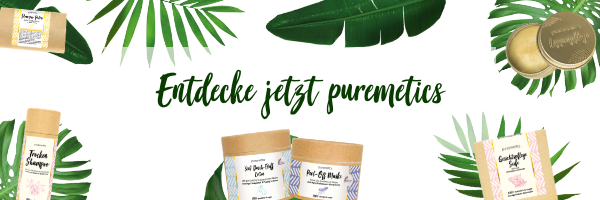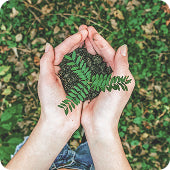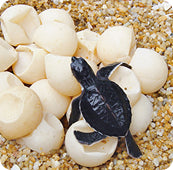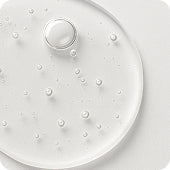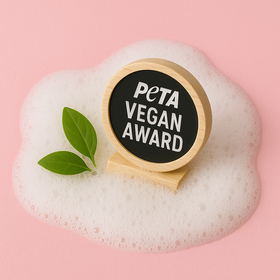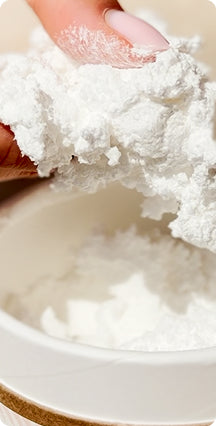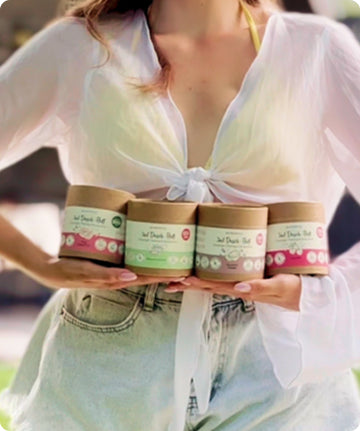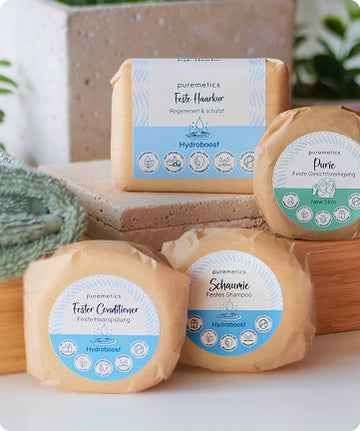Plastic waste from toilet and kitchen paper
Plastic waste from toilet and kitchen paper

There are things in life that we take for granted until one day they aren't there anymore. In 2020, this is probably how most people felt about toilet paper. Empty shelves, regulations such as "Only 2 packs per household", jostling for new deliveries. The images of people in the supermarket jostling for the new “white gold” were frightening. Those who were not physically involved in getting toilet paper often asked themselves: "How much toilet paper can a person use?".
- In March 2020, the increase in toilet paper sales compared to the previous year was estimated at over 30 percent.
- Even without buying hamsters during a pandemic, the Germans are runners-up in consumption. In 2018, the annual consumption of toilet paper in Germany was estimated at around 134 rolls per capita.
- Assuming an average of 200 sheets per roll, this results in a consumption of over 26,800 sheets per year, per capita.
Surely you all know the 4-ply, bright white, soft and scented toilet paper from the shelf. Usually in packs of 8 or 10 and wrapped in plastic.
Did you know that these toilet paper rolls require trees to be felled, bleach to be used and plastic sleeves to be made? The "white gold" also causes huge amounts of plastic waste through its plastic packaging, clear-cutting on plantations is also standard, as is the consumption of huge liters of water for production.
Did you already know, that...
...more than 8 billion tons of plastic have been produced worldwide since the 1950s, but not even 10 percent of it has been recycled? There are simple solutions to minimize the increasing amounts of waste.
Toilet paper rolls, for example, can be bought in bulk shops. The shops offer the possibility to buy toilet paper rolls individually or in larger quantities in a box. The rolls are made from recycled paper and not virgin fiber. This means: For recycled toilet paper, paper is simply used that already exists: waste paper. Tippitoppi - because new trees do not have to be felled separately.
Blue Angel
There is a 1 with an asterisk for everyone who still pays attention to the Blue Angel certification even with recycled paper. Why? Quite simply: The eco-label stands for high standards to protect our environment and health - independently and credibly.
Regionally produced and recycled paper is probably the most sustainable way to avoid the plastic madness in small and large businesses. But not everyone can make friends with recycled paper in the bathroom. For those, there is also a more sustainable alternative to conventional toilet paper: Smooth Panda produces ' po paper ' from bamboo.
The biggest weed in the world
- In plant systematics, bamboo is a grass and not a tree.
- Giant bamboo can grow up to 70 centimeters per day.
- Giant bamboo develops the sturdiest blades of grass and can grow up to 40 meters tall.
As with conventional toilet paper, fresh fibers are used for the bamboo paper. The difference is that bamboo does not have to be felled, only harvested. Bamboo does not die after being cut, but produces new shoots. Bamboo can be harvested for the first time three years after planting. The cellulose content is also higher in bamboo than in trees. The rapid growth makes the use of pesticides and fertilizers superfluous. Smooth Panda also dispenses with the usual bleaching agents. The paper is packaged in recycled paper or can be shipped individually or in large shipping boxes.
disposal
Did you know that...
used handkerchiefs and kitchen towels can usually no longer be recycled and therefore have to be disposed of in the residual waste?
Damp wipes
Many prefer to use damp toilet paper. As this is tear resistant and gives a clean and fresh feel. The feeling and the fresh scent are mostly the result of parabens, surfactants or fragrances. Yeah!
Wet wipes are particularly tear-resistant because they are usually made of non-woven fabric. However, these fleece cloths can lead to blockages in sewage pipes or on the way to sewage treatment plants. The result: Broken pipes and pumps. For this reason, wet wipes should also be disposed of in the residual waste.
DIY: Homemade wet wipes
- a closable container (preferably stainless steel)
- 1 tbsp coconut oil, olive oil or baby oil
- 250 ml of boiled water
- Recycled kitchen paper
- Cut kitchen paper to size, unroll and fold so that they can be pulled out of the tin later
- Mix boiled water and oil and add to the towels in the can
- Leave for a few hours
Tip: only make as many towels as you can use in a week. The shelf life is limited to one week.
Paper can also be saved thanks to a bidet. For those who don't have one or who can't renovate the bathroom, there is the option of a bottom shower, such as from Happypo . Although the shower is made of plastic, it is durable and promises a reduction in toilet paper of at least 50 percent.
Change not only necessary in the bathroom
Fresh fibers and plastic covers can be saved not only in the bathroom. Germans use about 19 kilos of toilet paper, paper handkerchiefs, kitchen paper and paper serviettes per capita per year.
- Compared to 2004: an increase of more than 40 percent
- More than 40 percent of the fresh fibers for the German market come from South America
Here, too, the fresh fiber can easily be saved. Smooth Panda, for example, offers ' nose towels ' and ' kitchen paper ' made from bamboo in addition to ' po paper '.
Pandoo also offers washable bamboo towels as an alternative to kitchen paper . These towels can replace up to 60 rolls of paper towels. Like toilet paper, kitchen paper and handkerchiefs are also made from waste paper and certified with the Blue Angel. The most sustainable are the reusable variants made of fabric. Because stains that occur in the kitchen can be easily wiped away with dry or wet kitchen towels and reusable cloths.
Our tip
You don't have a chance to buy toilet paper and kitchen roll unpackaged? Then use the plastic bags as garbage bags afterwards. Win, win situation!
If you would like to be informed directly about the latest blog posts, please follow us Instagram ! :-)

